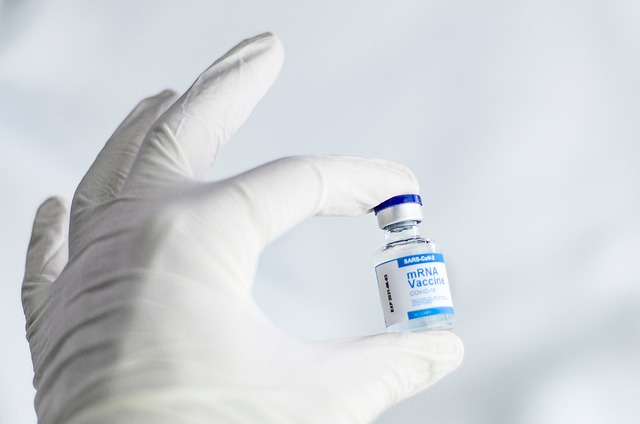
The acting director of the US Centers for Disease Control and Prevention has called for vaccine manufacturers to develop separate measles, mumps, and rubella shots to replace the combination MMR vaccine, despite an absence of scientific evidence supporting any benefits from administering the vaccines separately.
Trump Administration Directive Challenges Decades of Vaccine Policy
Jim O’Neill, who simultaneously serves as deputy secretary of the US Department of Health and Human Services, posted Monday on social media urging vaccine makers to create individual monovalent vaccines instead of the combined MMR shot. His statement quoted President Donald Trump’s September 26 post advocating for breaking up the vaccine into three separate injections.
The president provided no justification when proposing the vaccine split. The MMR combination has maintained approval in the United States since 1971. The CDC explicitly states on its website that “no published scientific evidence shows any benefit in separating the combination MMR vaccine into three individual shots.”
Andrew Nixon, HHS communications director, told reporters that standalone vaccinations could potentially reduce side effect risks and maximize parental choice regarding childhood immunizations. However, he furnished no evidence demonstrating that separating the MMR vaccine specifically would diminish any side effect risks. The CDC notes that combination vaccine side effects are “usually mild” and “similar to those of the individual vaccines given separately.”
Dr. Paul Offit, a vaccine scientist at Children’s Hospital of Philadelphia and former CDC independent vaccine advisory group member, stated that separating the MMR vaccine into three shots would not enhance safety. Instead, it would increase costs and reduce usage likelihood.
Merck, manufacturing one of two approved US MMR vaccines, explained to reporters that it prioritized combination vaccine production over single-disease components to address public health and medical requirements for measles, mumps, and rubella vaccination.
A Merck spokesperson stated that using individual components from combination vaccines increases injection numbers and may cause delayed or missed immunizations. The company emphasized that “there are no approved US monovalent measles, mumps and rubella single antigen vaccines.”
GSK, producing the alternative approved US MMR vaccine, released a statement emphasizing that combination vaccines critically improve vaccination coverage rates, with safety and efficacy demonstrated through decades of research. By reducing required separate injections, combination vaccines enable simpler, more efficient immunization processes essential for timely disease protection.
Medical Experts Reject Debunked Autism Connection
The concept of splitting the MMR vaccine isn’t novel but has undergone thorough examination, according to Offit. Calls for separation emerged following a now-retracted 1998 paper from former British physician Andrew Wakefield suggesting a connection between the combination MMR vaccine and autism.
“Before the claim was discredited, researchers took it seriously, investigated it thoroughly, and found no link,” the American Academy of Pediatrics states on its website. “This research, in many countries, involving thousands of individuals, has spanned multiple decades.”
Trump initially raised the MMR vaccine splitting idea during last month’s autism-focused news conference, which primarily centered on Tylenol despite lacking evidence that the pain reliever and fever reducer causes autism.
“The MMR, I think, should be taken separately. This is based on what I feel,” Trump stated at the time. He continued, suggesting that mixing vaccines could create unspecified problems, asserting no downside exists to separate administration and claiming experts believe it’s superior.
Trump also referenced that the chickenpox, or varicella, vaccine is offered combined with MMR. The CDC’s external vaccine advisers recently voted that children should receive initial MMR and varicella doses separately.
MMRV vaccines are administered in two doses—the first around age one, the second around four to six years. A small but elevated febrile seizure risk exists when MMRV combination is given as the first dose. Consequently, the CDC previously recommended separate varicella vaccination for children under four, though parents and physicians retained decision-making flexibility.
The advisers’ vote mandated separate chickenpox vaccine administration for first doses. Febrile seizures, while alarming, haven’t been associated with long-term health consequences, the CDC states. No increased risk exists for combination MMRV vaccines in children aged four to six.
The proposal to separate well-established combination vaccines raises concerns among public health experts about potential impacts on vaccination rates. Additional injections create more opportunities for missed appointments and incomplete immunization schedules, potentially leaving children vulnerable to preventable diseases.
Measles remains highly contagious, and recent outbreaks in various communities demonstrate ongoing public health risks when vaccination rates decline. Public health officials worry that administrative changes without scientific justification could undermine confidence in vaccination programs.
Vaccine manufacturers face significant development and production costs to create separate formulations that currently don’t exist in the US market. The economic and logistical challenges of producing three individual vaccines instead of one combination product could affect availability and affordability.
Healthcare providers also express practical concerns about implementing a three-injection schedule versus a single shot. Additional appointments and injections increase burden on families and medical practices while potentially reducing completion rates for full immunization series.
The debate highlights tensions between evidence-based public health policy and political directives. Medical professionals emphasize that vaccine recommendations should derive from rigorous scientific research rather than personal feelings or unsubstantiated claims.



